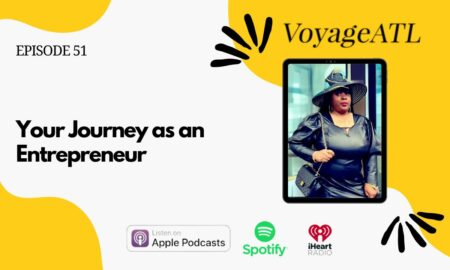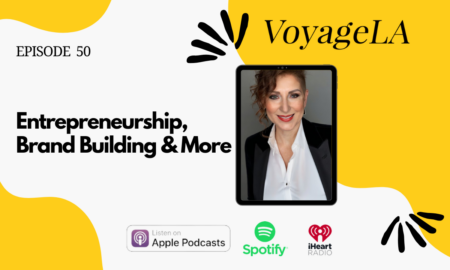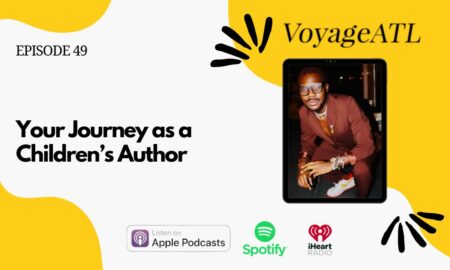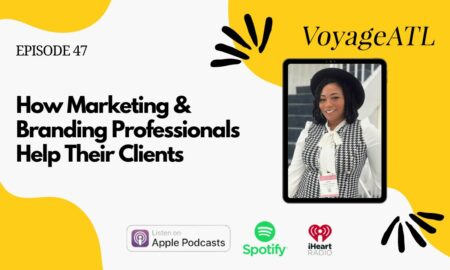

Today we’d like to introduce you to Joseph Lamb.
Thanks for sharing your story with us Joseph. So, let’s start at the beginning and we can move on from there.
I went to school in Florida. Southeastern University in Lakeland FL started as a Bible school so most of my classmates were studying for ministry. I took a very specific path called Pre-Seminary, which prepared me for ministry or graduate school. I was married when I started at my undergraduate degree, and 4 years of any school where you are struggling to pay bills is tough, but adding the additional stress of children, working in the local church and trying to keep a marriage alive can be challenging. After four years, the stress had taken its toll on my marriage and although we struggled to keep it alive, something had to give. I graduated SEU with honors and moved back to my hometown of Atlanta to attend Emory University, being accepted to Candler School of Theology. I was excited about furthering my education but the tension at home rose to a level that could not be ignored. I never made it to Candler, seeking instead to find employment, hoping the extra money would quiet things down at home. When I was at Southeastern, one of my jobs was security. I worked for a large mega church in their security department between midnight and 8am. This was a great gig, as it gave me some quiet time to do my studies. Some nights the only other person in the building was an old guy (he was old to me at the time) that worked on the church’s cutting-edge computer systems. This guy taught me about computers. How to take them apart, replace boards, expand memory and install operating systems. This was in the DOS operating system days so everything was command line, but I was able to learn some basic programming. This knowledge served me well on campus, as my friends would always bring me their computers to fix. I had no idea how important this would be to my career later in life.
My first job post college was working for The CIT Group, a finance organization owned by Chase Manhattan bank. I did memory upgrades and support and learned what corporate America looked like, and how it operated (politics and all.) I took to computer engineering like a fish to water and was soon learning how to manage networks, configure routers and switches and deploy email systems. I was recruited out of that job to another, and then another, gaining experience along the way. In the late 90’s I found myself working in operations management at ADP and giant in the payroll services space. I also found myself divorced with two small children that I had custody of at the ages of 2 and 3 years old. Making money and fixing networks, I was very comfortable with, but single Dad was something entirely different. Getting the kids up in the morning, dressing them, feeding them, and dropping them at daycare in the morning felt like a job in itself (kudos to anyone that does this daily). I needed something different in my life to help balance my work with the needs of my children. At ADP I saw consultants come and go that billed a lot of money, and did not seem to produce a great deal of work product. I thought I could do something similar so I decided to leave ADP to start my own business. I told my boss and they were not super excited for me. They did however, agree to let me do some consulting work with them to help me get started, but the last day I was there, they rescinded the offer citing a “conflict of interest”. So there I was; 28 years old, two small kids and no income. I beat up my contacts, calling everyone I had ever met to tell them what I was doing. At the time, I was planning to do consulting work. One of the first clients that I worked with was a friend in the recruiting business. He and a few friends were breaking away from an existing workplace and starting their own recruiting business. I went to meet with them and gave them a proposal for hardware, software and services; everything they needed to get started.
They looked it over and then the principal looked back and me and said, “is there a way you can just put this into a monthly agreement, so we can just pay you every month to take care of everything?” And that is where the heavens opened up and the light shone down. I immediately went to work figuring out what this customer needed on an ongoing basis and translated that into a small monthly fee. Instead of a consulting fee for implementation, I just charged the monthly fee and was able to continue supporting the customer for years.
This service eventually became the service we provide today, called Qmanage. A monthly managed service for small business. Over the years, we have added value to it through cloud options, hosting, offsite backup, disaster recovery, etc, but our service today, came from that very first agreement!
Great, so let’s dig a little deeper into the story – has it been an easy path overall and if not, what were the challenges you’ve had to overcome?
There is nothing smooth about starting or running a small business. The first few years are brutal and day to day you never know whether you are going to stay above water or not. I would say the largest struggles for me have been staffing. It is difficult to find good people that will embrace your vision. An employee will never have the drive and vested interest in the company’s success like an owner, but as a leader, it is your job to get them excited, to communicate the vision and get them all rowing in the same direction. I wish I were better at it. I am still learning today. Somewhere along the way, all the new employees were millennials. This has been a tough transition. The millennials think very different than their parents did. Learning to manage young people that are not money motivated is a challenge. They seem to desire more connection to the story; more evidence that they are a part of something greater. As a manager, it is our job to speak that into them so they connect. For older managers, this is a HUGE struggle because we just don’t think that way. I was taught you go to work, keep your head down and perform. If you do it right, you may get acknowledgement at the company holiday party and a slight bump in pay once a year. If you do it wrong, you are out the door.
Millennials are not the same. They need their supervisor to care about them as a person. They want their employer to work hard to try and understand who they are as people. And if you cannot get them connected to a greater vision (and provide free cokes and snacks), they are out there looking for something else.
Qsource Networks – what should we know? What do you guys do best? What sets you apart from the competition?
Qsource is an IMO (Infrastructure Management Company). We are the ONLY IMO in Atlanta, mainly because we made that word up. We began doing managed services long before anyone used the term managed services. Qsource, along with a few other companies in Atlanta, really pioneered this industry in the Southeast. We borrowed from one another and watched the industry grow. In the end, all the companies offered the same products and services and all of them were called MSPs (Managed Service Providers.) Since we began before most of the rest, we always did things a little differently. I wanted to build a service that was truly customer centric. This was before I understood margins or how to read a complicated P&L statement. I just wanted to do right by the customer and make a living doing it. When customers said, “hey, can you do online backups?” we said “Yes” and then figured out how to do it. When they said, “we want a consistent bill every month without surprises,” we went and figured out how to modify our billing so it worked for the customer. Everything we built was about the customers best interests. That was the criteria I used to develop the service as a product.
I would ask myself, “if I was a customer, what would I want.” We probably make less money than our competitors sometimes, but I think our customer retention says we are doing something right. What sets us apart from the competition is a customer service edge. We like to say we are a customer service organization that happens to do IT. We learned this from Keller Williams, and several other great organizations that realized that customer service is what keeps customers. I am most proud of how we have kept that customer service focus over the years. One of our core values is family, and that is what we are about. Treating customers and employees like family.
What moment in your career do you look back most fondly on?
I have written a couple books over my career. Early on, someone told me it was a great way to get your name out there and earn some new business. I was contacted by someone at Syngress Publishing about writing an MCSE: Study Guide and I contributed a couple chapters. A year or so later, I was doing a project on Microsoft Clustering for a client, which was a relatively new technology at the time. I went looking for reference material and found there was only one book on the market that discussed the topic.
After reading it, I realized it was written more for developers than engineers so I wrote a letter to the publisher and told them they needed a book written to a different audience.
They responded with a couple questions and after writing a sample chapter, they gave me a contract to write the Windows 2000 Clustering and Load Balancing handbook, which was published in 2001 by Prentice Hall.
I spent 6 months writing and editing the book along with their help. I never received any business from it or accolades, but it was a great experience and I would do it again.
Contact Info:
- Address: 1100 Northmeadow Pkwy.,
Suite 100 - Website: www.qsource.net
- Phone: 6789478366
- Email: info@qsource.net
- Facebook: https://www.facebook.com/qsourcenetworks/






Getting in touch: VoyageATL is built on recommendations from the community; it’s how we uncover hidden gems, so if you know someone who deserves recognition please let us know here.



















